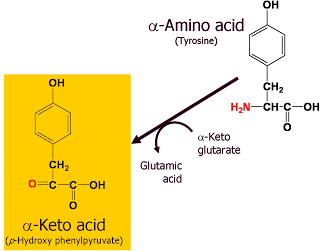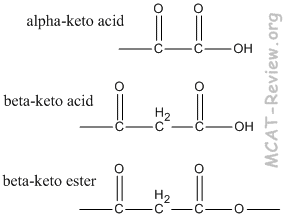what are keto acids Acids kdc alcohols adh decarboxylase
Starting p: Have you ever heard of the term “keto”? Perhaps you have seen it on social media or heard it from friends, but what exactly is the keto diet? The keto diet is a high-fat and low-carbohydrate diet that has gained immense popularity in recent years. The idea behind the diet is to induce a metabolic state called ketosis, where the body burns fat for energy instead of carbohydrates. But why has this diet become so popular? Let’s dive in and explore the science behind it. The first image we have is from dairychemistry.net, where the author discusses the importance of dairy chemistry in the food industry. However, what caught our attention is the title of the article which reads, “Keto-friendly dairy chemistry.” This shows just how far the keto diet has infiltrated our culture, to the point where even dairy chemistry is viewed through the lens of this popular diet. The second image we have is a screenshot from a question on a chemistry forum. The question asks about the Clemmensen reduction of alpha and beta keto acids. Again, we see the term “keto” being used in a scientific context, which shows just how deeply ingrained the diet has become in our society. But is the keto diet really all it’s cracked up to be? Proponents of the diet claim that it can lead to weight loss, reduced appetite, and improved metabolic health. However, many experts argue that there is no scientific evidence to support these claims. In fact, some studies suggest that the keto diet may be harmful in the long run. While it is true that the keto diet can lead to weight loss and improved metabolic health in the short term, this is largely due to the fact that the diet severely restricts carbohydrates. Carbohydrates are an important source of energy for the body, and when they are scarce, the body turns to fat for energy instead. However, this state of ketosis can be harmful if it lasts for too long. When the body is in a state of ketosis, it produces ketone bodies, which can be toxic in large amounts. Furthermore, the keto diet is often high in saturated fats, which can increase the risk of heart disease and other health problems. This is not to say that all fats are bad, but it is important to choose healthy fats, such as those found in avocados, nuts, and fatty fish, rather than saturated fats found in butter, cheese, and fatty cuts of meat. In conclusion, while the keto diet may have some short term benefits, such as weight loss and improved metabolic health, there is no scientific evidence to support its long term effectiveness. Moreover, the diet can be harmful if taken to extremes. It is important to maintain a balanced diet that includes healthy fats, carbohydrates, and proteins for optimal health. H2: The Importance of Dairy chemistry 
Dairy chemistry plays a vital role in the food industry, from milk production to cheese making to ice cream production. However, with the rise of the keto diet, dairy chemistry has taken on a new importance. Many dairy products, such as cheese and butter, are high in fat and low in carbohydrates, making them ideal for the diet. Moreover, dairy products are a good source of protein, calcium, and vitamin D, all of which are important for overall health.
H2: The Clemmensen Reduction and Keto Acids  The Clemmensen reduction is a chemical reaction that is often used to reduce carbonyl groups, such as those found in alpha and beta keto acids. While this may seem like an obscure topic, it is interesting to note how deeply ingrained the term “keto” has become in our culture, to the point where it is used in scientific contexts such as this. However, it is important to remember that the keto diet is not a cure-all, and that a balanced diet is the key to good health.
The Clemmensen reduction is a chemical reaction that is often used to reduce carbonyl groups, such as those found in alpha and beta keto acids. While this may seem like an obscure topic, it is interesting to note how deeply ingrained the term “keto” has become in our culture, to the point where it is used in scientific contexts such as this. However, it is important to remember that the keto diet is not a cure-all, and that a balanced diet is the key to good health.
If you are looking for Conversion of 2-keto acids to higher chain alcohols. KDC 2-keto acid you’ve visit to the right page. We have 5 Pics about Conversion of 2-keto acids to higher chain alcohols. KDC 2-keto acid like Keto Acids and Esters - Oxygen Containing Compounds - MCAT Review, www.dairychemistry.net: October 2009 and also www.dairychemistry.net: October 2009. Here it is:
Conversion Of 2-keto Acids To Higher Chain Alcohols. KDC 2-keto Acid
 www.researchgate.netacids kdc alcohols adh decarboxylase
www.researchgate.netacids kdc alcohols adh decarboxylase
Conversion Of 2-keto Acids To Higher Chain Alcohols. KDC 2-keto Acid
 www.researchgate.netacid acids alcohols kdc decarboxylase adh dehydrogenase
www.researchgate.netacid acids alcohols kdc decarboxylase adh dehydrogenase
Organic Chemistry - Clemmensen Reduction Of α-, β-keto Acids
 chemistry.stackexchange.comWww.dairychemistry.net: October 2009
chemistry.stackexchange.comWww.dairychemistry.net: October 2009
 dairychemistry.blogspot.comketo alpha acids
dairychemistry.blogspot.comketo alpha acids
Keto Acids And Esters - Oxygen Containing Compounds - MCAT Review
 mcat-review.orgketo acids esters mcat acid oxygen description oxo compounds example review containing nomenclature
mcat-review.orgketo acids esters mcat acid oxygen description oxo compounds example review containing nomenclature
Keto alpha acids. Conversion of 2-keto acids to higher chain alcohols. kdc 2-keto acid. Www.dairychemistry.net: october 2009